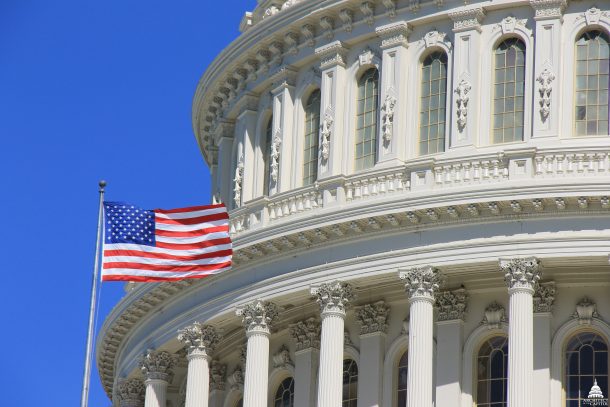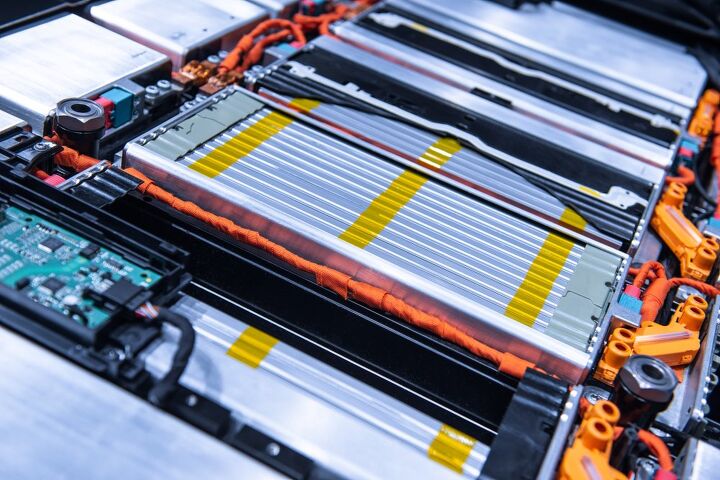#government
Audi Abandoning Subcompact Cars Over Regulatory Pressure
Audi is discontinuing the A1, citing Europe’s regulatory landscape as the main cause. Eager to limit the amount of CO2 coming out of tailpipes, the European Union has placed strict limits on petroleum-powered passenger vehicles. For Audi, the price of manufacturing a subcompact automobile-dependent upon internal combustion is getting too high. Installing a smaller motor would negatively impact drivability while slotting in a hybrid powertrain means more R&D costs and jacking up the MSRP to a point where consumers might lose interest.
There’s just not much incentive to build small, efficient vehicles when the profit margins have been made razor thin and people aren’t buying them in great numbers. And this is a lesson that’s being learned by all automakers, not just those associated to Volkswagen Group.
U.S. and Mexico Can't Come Together On Light Vehicle Rules
When the United States abandoned the North American Free Trade Agreement (NAFTA) to embrace the United States-Mexico-Canada Agreement (USMCA), it did so under the premise of crafting a better trade arrangement for itself. Established in 1994, NAFTA created a trilateral trade bloc that encouraged commerce between nations. But critics have accused it of encouraging the offshoring of U.S. jobs and dramatically suppressing wages — particularly within the automotive and manufacturing sectors.
Signed in 2018, and revised the following year, the USMCA was supposed to remedy those issues. But it’s been difficult to get all parties on board, especially when it comes to those persnickety rules of origin that stipulate how much of a vehicle’s hardware needs to be sourced from member nations.
Europe Proposes Banning Internal Combustion Cars By 2035
Last week, the European Union proposed banning the sale of all new internal combustion vehicles starting in 2035. With several member nations proposing restrictions in the coming years, EU leadership feels it can accelerate the timeline to force electric vehicles as the de facto mode of transportation. The European Commission has suggested making it illegal to sell gas or diesel-powered vehicles in 14 years, with aims to reduce CO2 emissions produced by automobiles by 55 percent (vs 2021 levels) by 2030.
But countries that still produce vehicles have expressed reservations about the scheduling. France absolutely agrees with mandating restrictions that would reduce greenhouse emissions. Though President Emmanuel Macron’s office has been pressing that hybrid vehicles would be able to do much of the heavy lifting and fears that an outright ban of internal combustion could hamstring the industry if conducted too early. Germany, which manufacturers more vehicles than other EU member nations, is of a similar mind.
Right-to-Repair Movement Gets Federal Attention
While the right-to-repair movement is fighting a national battle, the brunt of the action has been taking place on America’s coasts. Consumer activists are taking on multinational corporations that don’t want you to modify your mobile devices, affix aftermarket components to your vehicle, or have complete access to the data that’s amassed by the staggering number of products that are needlessly networked to the internet. After years of petitioning the government, often while arguing with high-paid lobbyists, the group achieved a major victory in Massachusetts in 2020. Voters decided that automakers should not be allowed to withhold information from the vehicle’s owner or use it as a way to prohibit them from taking their car into independent repair shops (rather than manufacturer-certified service centers) or tinkering with it themselves.
Now the federal government is getting involved. Joe Biden has signed an executive order that effectively forces the Federal Trade Commission (FTC) to take regulatory action that would settle the matter. But we don’t really know if that’s going to lead to a market where customers are free to treat their property (and private data) as they wish, one where the manufacturer holds all the cards, or simply result in a regulatory minefield displeasing all parties.
Canadian Government Now Wants All Vehicles Zero-Emission By 2035
Tesla 'Recalling' 285,000 Vehicles in China Over Autopilot Issue
The Chinese Communist Party seems to have it out for Tesla. Following bans that prohibited the brand’s vehicles from parking themselves anywhere near a military base, China’s government has decided to recall over 285,000 Tesla automobiles sold in the country. We’ve also seen state-run media outlets begin branding the automaker as irresponsible and arrogant amid consumer protests some are concerned might have been staged for political reasons. Though it’s painfully hard to get inside the head of the CCP while you hope for concrete evidence of any of the above. Propagandizing and censorship have reached a level where just about everyone is having difficulties distinguishing up from down.
What is certain, however, is that Tesla’s regional volume has taken a noteworthy hit in 2021 despite sales more than doubling the previous year. While this may have nothing to do with the bad publicity and recall campaigns, we’re betting the latest example — which pertains to customers misusing Autopilot — won’t help matters.
Emerald-Colored Glasses: Just How Green Are EVs?
As the resident sourpuss, I make it my business to complain about every industrial hypocrisy that crosses my path and the automotive sector has kept me so busy that there’s hardly any time left to address my own failings. Though I do have to confess that I sometimes feel guilty about how frequently I’m compelled to gripe about electric vehicles. Provided that you’re willing to work with their charging limitations and less-than-impressive ranges, EVs have a lot to offer even in their current state. But the way they’ve been marketed has been so consistently disingenuous that I often end my days on the cusp of a frustration-induced aneurysm.
The winds appear to be changing, however.
After years of watching the industry bang its head against the wall, the media seems prepared to shift its position. Accelerated adoption of pure electrics doesn’t seem to be happening and too many EV startups have ended up being little more than an opportunity for investors to throw away money. Increasingly fewer people ask me about battery-powered cars in a way that suggests true enthusiasm. Excitement has given way to dubiousness as more people have begun to ponder if electrics are really all they’re cracked up to be.
Driving Dystopia: Speed Camera Rule Change Creates Ticketing Explosion in Chicago
At the start of the year, the city of Chicago announced that it would be changing rules pertaining to traffic enforcement as part of Mayor Lori Lightfoot’s updated 2021 budget package. But the one that was causing the most concern among motorists was a provision to have speed cameras issue tickets to anybody traveling 6 miles an hour over the posted limit, rather than the previous cutoff of 10 MPH. While just a singular aspect of the city’s plan to resolve a $1.2-billion deficit, it turned out to be one of the most controversial items and appears to have resulted in a tenfold increase in fines.
According to local affiliate CBS Chicago, data from a public records request indicated that during the 36-day period before and after the change took effect on March 1st, citywide ticketing went up from 35,784 citations in the weeks before to a massive 398,233 in the proceeding weeks.
Senate Approves Bill Injecting Cash Into Semiconductor Industry
Apologies for all the semiconductor news. But it’s the topic of the day, with the United States Senate recently approving $52 billion in emergency spending to help bolster domestic chip production and another $190 billion for R&D programs.
Passing the vote (68-32) under the premise that boosting localized chip production would help prevent domestic automakers from having to cut corners, the Senate is also suggesting the funding could give the U.S. a competitive advantage against China. The Communist Party of China (CCP) has opposed the U.S. Innovation and Competition Act (formerly the Endless Frontier Act), with statements released from the National People’s Congress (NPC) demanding the legislation be halted immediately.
Recycling EV Batteries Might Soon Become Booming Domestic Industry
Having covered the White House’s incredibly expansive and costly infrastructure plan, specifically as it pertains to transitioning the entire nation toward alternative energy vehicles, we’ve often found ourselves asking questions. Puzzlers include wondering whether or not consumers actually want this change and how can we possibly expect to pay for this when we’ve already starting conjuring money out of thin air for other government programs. We don’t even know where we’re supposed to get the rare-earth minerals necessary for production when mining them is heavily regulated in the United States and hardly an endeavor that would be considered kind to the natural landscape.
Last week proved that we weren’t entirely alone in pondering how all of this greenification is supposed to work.
Gas War: Biden Suspends Oil Drilling Leases in Alaska
On Tuesday, the Biden administration announced it would be suspending oil and gas leases issued in Alaska’s Arctic National Wildlife Refuge during the last days of the Trump administration. Bent on maintaining the United State’s energy independence, Donald Trump had moved to expand fossil fuel development in ways that would have been at odds with predecessor Barack Obama. But today’s White House represents a return to form, with an interest in supplanting traditional energy concerns with what it believes will be greener alternatives.
It’s bad news for the Alaskan state government, which had hoped to devote a subset of the region to rebuilding its oil industry by taking advantage of its vast reserves. But environmentalists and a subset of tribal representatives have praised the decision to prohibit development on protected lands. We expect consumers will have conflicting opinions, based largely upon how much they’re willing to pay at the pump.
Senate Finance Committee Approves $12,500 EV Tax Credit Bill
On Wednesday, the Senate Finance Committee advanced the Clean Energy for America Act making a few tweaks from earlier proposals. Changes include raising the federal EV tax rebate ceiling to $12,500 and opening the door for automakers who already exhausted their production quotas.
It’s good news for General Motors, which recently begged the government for just such a handout. But any manufacturer participating in the sale of electric vehicles will find themselves similarly blessed by the updated rules — assuming they make it through the halls of Capitol Hill with the necessary support.
Let’s take a peek behind the curtain to see what the updated proposal entails.
QOTD: Should the U.S. Produce Its Own Semiconductor Chips?
Now that it’s effectively too late to avoid a crisis, the United States has begun asking itself whether or not now is the time to put into motion a plan that will eventually lead to the nation manufacturing its own semiconductor chips. As you’re undoubtedly aware, the automotive sector has taken a beating as Asian-based supply chains are experiencing what can only be described as unprecedented demand. But they aren’t building enough to satisfy everyone and the local markets are taking precedent.
U.S. Commerce Secretary Gina Raimondo proposed a $52-billion solution on Monday that would cram fresh government funds into production and research that could result in seven to 10 new U.S. factories. But that’s just to get the ball rolling on an industry that will take several years to mature, leaving some to wonder whether the country should even bother.
Texas Considers Taxing Electric Vehicles
Texas lawmakers have presented Senate Bill 1728 as a way to nail electric vehicles for circumventing fuel taxes, sending everyone into a tizzy. Electrification has become about more than simply developing new powertrains under the auspices of environmentalism and it’s observable in this week’s headlines. But let’s discuss what SB 1728 hopes to achieve so that you might make up your own mind without this author’s forthcoming influence.
If passed, the bill would raise fees on EVs as a way to make up for the gas tax they’re not paying. The proposed legislation stipulates an annual fee of between $190 and $240, an additional fee of at least $150 for anyone who drives their car more than 9,000 miles a year, and then 10 bucks per year for the local charging advisory council. The rules would come into effect this September and raise an estimated $37.8 million for the State Highway Fund in 2022. While we cannot say whether that money will be used responsibly, the pretense is that the funds will be used to “[equalize funding for] road use consumption for alternatively fueled vehicles.”
Report: The Government Is Already Using Connected Cars to Spy on You
A recent report from The Intercept has confirmed some of our biggest fears about connected vehicles. Apparently, U.S. Customs And Border Protection (CBP) has struck a deal with Swedish mobile forensics and data extraction firm MSAB for hardware that allows the government to not only siphon up vehicle data but also use it as a backdoor to access the information on your phone.
While this shouldn’t be all that surprising in an America that’s seen the Patriot Act pave the way for all sorts of government spying, the arrangement represents another item in a toolbox that’s frequently used against regular citizens. CBP is alleged to have spent $456,073 on a series of vehicle forensic kits manufactured inside the United States by Berla. Internal documents suggest that the system was unique and of great interest to the U.S. government, with a multitude of potential applications pertaining to automotive data. But what surprised us was just how much information carmakers thought their products needed to keep tabs on and how that plays into this.






























Recent Comments